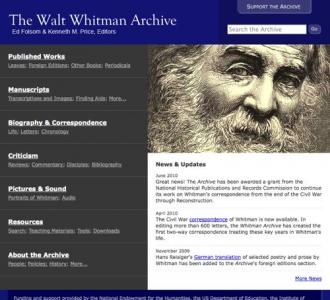Do Scholars Get Proper Credit for Digital Work?

An article in the Chronicle of Higher Education last month touched on an issue that will be taken up in a workshop at the 2010 Digital Humanities conference next week: the dearth of academic reviewing of digital and online work.
While formal academic reviews of digital work are rare, commentary and discussion about such work often takes place informally in other forums, such as blogs or on sites like arts-humanities.net. But such commentary may not count when it needs to – on a tenure review committee, for example.
Compounding the problem is the fact that online scholarly work often takes non-traditional forms. The Chronicle article cites the collaborative, multimedia Walt Whitman Archive as an example of the kind of important scholarly endeavor that is hard to assess according to traditional criteria. Julia Flandes, editor in chief of Digital Humanities Quarterly, suggests that four things need to be taken into account in the assessment of digital work: content, the digital tools used to build it, how the data are structured, and the interface. In other words, the technology needs to be assessed alongside the scholarship, not as a prosthesis but as an integral part of the way the project communicates.
In their workshop at DH2010, Peer Reviewing Digital Archives: the NINES model, Dana Wheeles and Laura Mandell will take up the problem of peer review of digital scholarship. They will discuss the protocols they have put in place at NINES – the Networked Infrastructure for Nineteenth-century Electronic Scholarship, will examine the MLA guidelines for evaluating digital work, and will workshop problems in peer-reviewing digital archives and sites, with the aim of helping department chairs, editors, librarians, and scholars understand better how to create and reform “institutional structures in which [digital] projects will live and thrive” – and in which scholars will be rewarded for, and thus encouraged to pursue, their online endeavors.